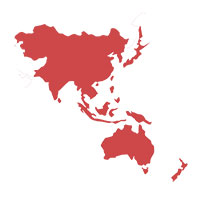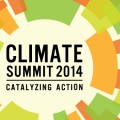Putting Lipstick on a Kiwi
David Gawith | December 10, 2015.
The UN climate change conference currently taking place in Paris drew the largest congregation of political power in history last week. It is now hosting an equally formidable gathering of diplomats, engaged in what the Former Prime Minister of New Zealand Geoffrey Palmer has called “the most important negotiation that has ever been held.”
It’s a world stage of unique importance and, at times, New Zealand’s acting has been painful to watch.
In this global and collaborative effort to address climate change, countries are judged largely on the adequacy of their emissions reductions plans, referred to as Intended Nationally Determined Contributions or INDCs.
New Zealand’s target of reducing emissions by 11% from 1990 levels by 2030 (with many conditions attached) has been rated as ‘inadequate’ by Climate Action Tracker – a research-based comparison of efforts to reduce emissions.
If all countries were to take a similarly inadequate approach, global temperatures would warm by 3-4°C by the end of the century, far above the target of limiting warming to 2°C and even further above the 1.5°C goal that is rapidly winning favour in Paris.
The government has been working hard to make our emissions reduction targets look sufficient. John Key used a large part of his statement at the world leaders segment of the Paris climate talks making excuses for New Zealand’s low ambition.
In a speech that jarred with the optimistic and urgent tone of other leaders, Mr Key claimed that “New Zealand faces unique domestic challenges in reducing its emissions,” referring to our high proportion of renewable electricity generation and emissions from agriculture.
The word ‘unique’ is misused here, given that there are 29 countries with a higher proportion of renewable electricity – more still with a higher proportion of renewables and nuclear combined – and many of the world’s poorer countries have higher proportions of agricultural emissions than New Zealand.
New Zealand’s Minister for Climate Change Issues, Tim Groser, also publicly dismissed the Climate Action Tracker report as being “green activists talking to each other,” however this claim doesn’t stack up either.
The Climate Action Tracker consortium is made up of four well-respected international research organisations. It uses data from National Submissions to the UNFCCC and assesses effort-sharing based on a wide range of studies assessing fairness used by the Intergovernmental Panel on Climate Change (IPCC). These studies use different principles and frameworks and thus cover “very different viewpoints on what could be fair.”
New Zealand’s rating of ‘inadequate’ means that its emissions reduction target is not in line with a 2°C target under any interpretation of what is ‘fair’. That is to say; the IPCC review, which has been labelled “the most rigorous scientific document in history” by Christiana Figueres, could not find a single document to support the notion that New Zealand’s emissions reduction target represents its fair share.
Of course it’s possible that these organisations would risk their academic credibility in order to prejudice an assessment against New Zealand in the interests of reducing emissions – but it may have been better to target the US, China, India or the EU, all of which received a rating of ‘medium’ sufficiency. It’s also possible that Mr Groser put forward a disingenuous soundbite in the interests of disguising an insufficient contribution. The Verb invited Mr Groser to explain his concerns about the methods and data used in the report – an invitation he has not taken up.
The point is that New Zealand is at serious risk of being embarrassed by the government’s insufficient contribution here in Paris. This risk may explain why Tim Groser made the unusual move of not delivering a statement at the opening of the ministerial segment this week. If you can’t put lipstick on a pig, you certainly can’t put it on a Kiwi.
This piece was co-written by David Gawith and Paul Young.













comment